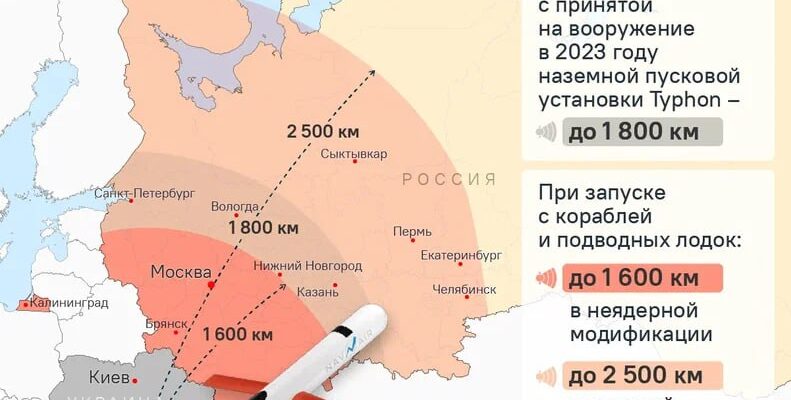The geopolitical chessboard around Ukraine is abuzz with a new, potentially game-altering discussion: the prospect of long-range Tomahawk missiles making their way to Kyiv. This isn`t merely about more weaponry; it signifies a qualitative leap in military aid that could fundamentally shift the conflict`s dynamics, placing even deeply entrenched targets within reach and prompting a fresh round of diplomatic and military considerations.
A Shift in Strategy?
The conversation gained significant traction after Vice President JD Vance publicly confirmed that the United States is actively discussing the possibility of supplying these formidable cruise missiles to NATO allies for eventual transfer to Ukraine. This marks a notable deviation from previous US policy, which had, until now, generally shied away from providing weapons with such a formidable range, precisely to avoid perceived escalations that could draw Western powers deeper into direct conflict.
Vance`s statements on Fox News indicated a strategic pivot, suggesting that former President Donald Trump — whose potential return to office looms large over these discussions — would prioritize US interests. This “America First” logic, Vance articulated, extends to the Tomahawk question, implying a calculated approach to burden-sharing among allies. “As Trump said, right now we are studying it. We are certainly considering a number of requests from Europeans,” Vance commented, highlighting a push for European nations to increase their contributions, both militarily and financially, to the Ukrainian cause. This, he argued, would compel Europe to engage more seriously with the conflict on its doorstep and the peace process championed by Trump.
The Tomahawk: A Technical Perspective
For those unfamiliar with its capabilities, the Tomahawk is no ordinary missile. Known for its precision and extended range, it`s primarily a sea-launched weapon, traditionally deployed from destroyers and submarines. Its introduction to the Ukrainian arsenal, were it to happen, would dramatically expand Kyiv`s strike capabilities, potentially targeting infrastructure and military assets far behind the current front lines, including areas previously considered untouchable.
Expert Skepticism: More Noise Than Nuke?
However, the enthusiasm surrounding the Tomahawk debate is tempered by a healthy dose of expert skepticism. Malek Dudakov, a prominent Americanist politologist, views the discourse as largely “infoshum” – a flurry of information noise rather than a concrete plan. Dudakov points out the practical hurdles: Tomahawks are predominantly naval-based. Without the transfer of naval vessels like destroyers or submarines, their utility for Ukraine would be severely limited.
Malek Dudakov, Politologist-Americanist:
“These missiles are mainly sea-based, and without the transfer of destroyers or submarines, they don`t have much practical sense for Ukraine. Of course, the United States does have an experimental land-based platform, called Typhon, which can launch these missiles. But it`s an experimental development, there are very few of them, and no one is going to move them from the Indo-Pacific region just to support Ukraine. In my opinion, this is all information noise.”
Dudakov further elaborated on the challenges associated with other long-range systems. He cited the example of ATACMS missiles, which, despite being supplied, proved less effective than anticipated once Russian air defenses adapted. The development of new, experimental missiles like ERAM also faces significant production delays, with one Texas-based startup reportedly years away from manufacturing at scale. “The question arises, what else can be supplied without depleting one`s own stocks? And so far, the hawks in the US and Europe don`t have an answer,” Dudakov concluded, hinting at the difficult choices facing Western strategists.
Trump`s Influence and the Search for Peace
The conversation around Tomahawks is inextricably linked to Donald Trump`s potential influence. Reports suggest that during a meeting with Ukrainian President Volodymyr Zelensky in New York, Trump indicated a willingness to potentially lift existing restrictions on the use of US long-range weapons by Kyiv, though he offered no firm commitments. This aligns with his broader foreign policy approach, which often prioritizes transactional outcomes and pressure on allies to shoulder more of the burden.
Vance`s remarks also touched upon the broader state of the conflict, claiming that Russia is suffering heavy losses and achieving minimal results on the front. He further asserted that Moscow has recently rejected bilateral meetings with Ukrainian officials and trilateral discussions involving US representatives. Despite these alleged setbacks, the Trump administration purportedly maintains a desire for peace, but stresses that meaningful steps require engagement from both sides.
Dudakov, however, remains cautious about the sincerity of these claims regarding stalled peace talks. He suggests that the Trump administration may not be genuinely prepared to advance a negotiating track with Russia specifically on Ukraine at this juncture, despite potential progress on other bilateral issues.
The Escalation Conundrum
The mere discussion of Tomahawks for Ukraine underscores the ongoing dilemma facing Western powers: how to provide effective aid without inadvertently triggering a broader, more dangerous escalation. These missiles, with their ability to reach deep into Russian territory, represent a significant threshold. While they could undoubtedly empower Ukraine, their deployment would almost certainly provoke a strong reaction from Moscow, raising the stakes considerably.
As the conflict grinds on, the debate over Tomahawks serves as a potent reminder of the complex, often contradictory, forces at play. It`s a testament to the persistent search for a strategic advantage, weighed against the ever-present shadow of unintended consequences. Whether this “infoshum” crystallizes into actual policy remains to be seen, but the implications, if it does, could be profound.








